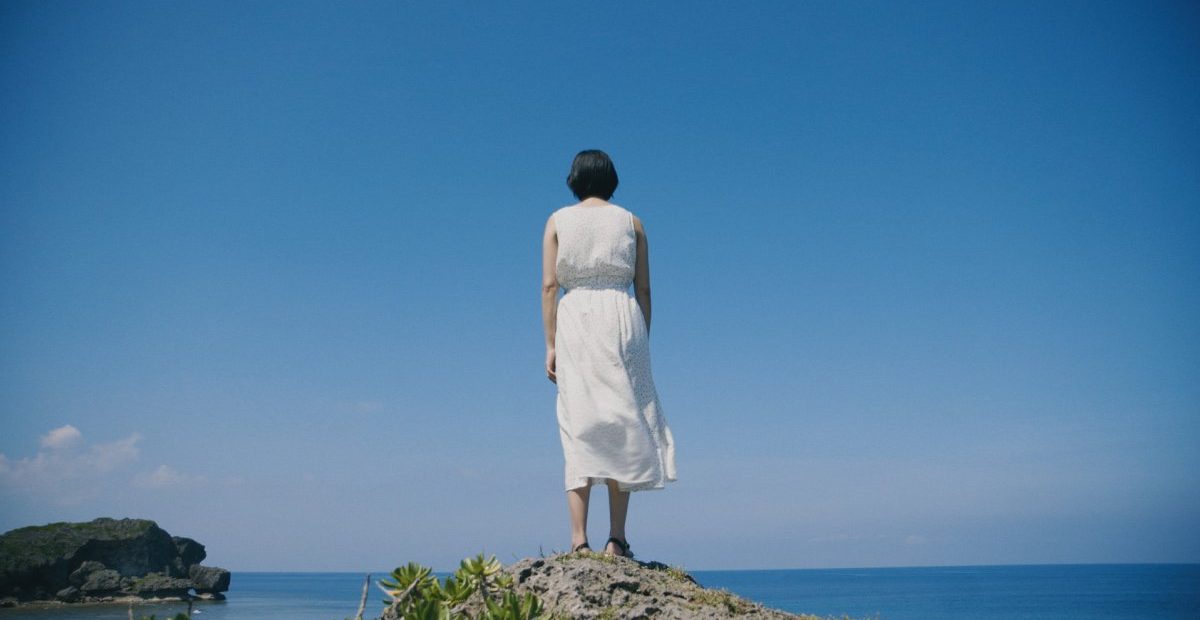Director: Gori
The protagonist of Japanese comedian and director Gori’s cathartic fairy tale Nagisa is the sea – both in a literal sense, through the gorgeous shots of flat cerulean ocean or of light dancing on wave-tops, but also through its eponymous character Nagisa, meaning ‘beach’. A spirited and forthright young girl, she embarks on an energetic plan to give a woman her life back.
The woman in question is Megumi. Following an abortion resulting from an extramarital affair, Megumi falls into a depression. After Nagisa miraculously pulls Megumi from the waves following a suicide attempt, this unlikely pair squabble their way to a resolution which offers a thought-provoking contemplation of life and death. A ghost story with a twist, Gori’s oscillation between absurdist comedy and pensive tragedy treads a fine line between mourning and celebration.
The central pair are stark opposites. Noriko Eguchi plays Megumi with a blank emptiness – a heavy sorrow which occasionally bursts forth in fiery anger. Her lethargic thousand-yard stare is in complete contrast to Miyu Arai as the young Nagisa. Buoyant, ebullient, and boasting a wide toothy grin, she is the cheeky antidote to Megumi’s grief. She also provides much of the film’s comic relief – particularly in the slapstick humour of their first meeting, in which the girl literally attempts to slap the sad out of the older woman.

Much of the film revolves around a tour of the island’s inhabitants. A collection of bizarre individuals, they sport some strange quirks but also benefit from the eager-to-please young girl. Full of hope and ambition, she spends her days trying her best to help this sometimes-unfortunate collection of folk, who pass like soft-focus vignettes on Megumi and Nagisa’s bike-ride through town.
Megumi, however, is not convinced. She sits apathetically on a trolley behind, telling Nagisa, “When you’re a child, you want to do many things. As you grow up, you learn to give up.” The disconnect between childhood and adult life, represented in the disjointed relationship between girl and woman, is held up as a root of Megumi’s sorrows. The loss of her own unborn child acting as the catalyst for her pain. A generational rift runs deep through the film’s imagination.
Earlier, I labelled Gori’s film fairy-tale. There is a magical sense of healing which weaves its way through the narrative. A potentially sombre final sequence is imbued with a sleepy supernaturalism, the prayerful candles giving off a warm orange glow. Nagisa’s final appearance, sporting the same infectious smile, offers an enduring hopefulness. And, of course, as we pan out, beyond the beach there is the constant heartbeat of the tide.
If the protagonist of Nagisa is the sea, then the sea is exposed as a force of both destruction and cleansing. First it is sought after by Megumi for its promise of oblivion, but finally it becomes a symbol of peace. Drowning or floating, the island of Okinawa is the perfect place to level this freeing story of mortality and immortality. Nagisa ends up being a study of life itself: long or short, happy or sad, lived or un-lived.





